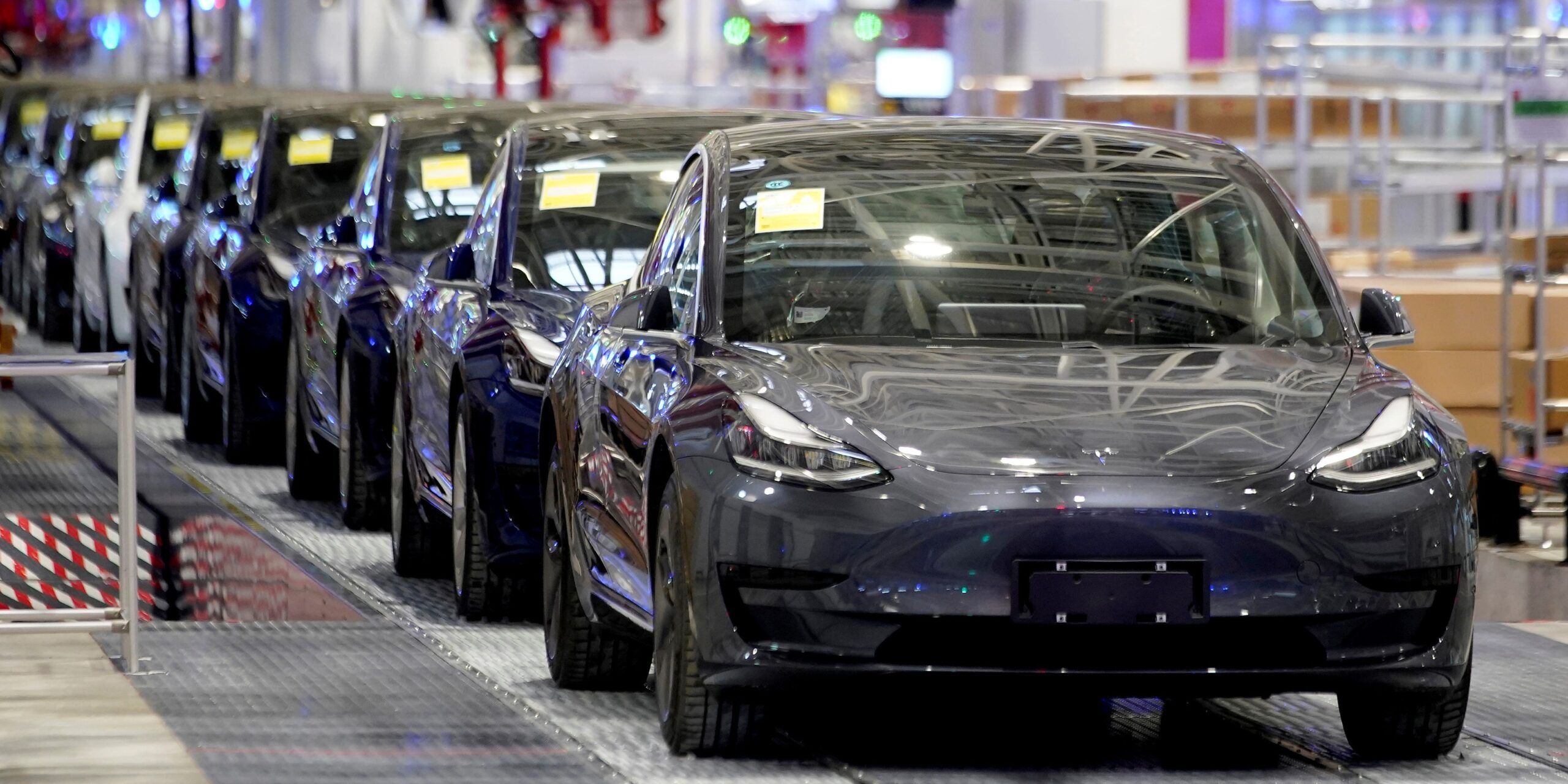Tesla China-made Model 3 vehicles are seen during a delivery event at its factory in Shanghai
Reuters
Tesla’s held a comfortable lead on electric-vehicle manufacturing and sales for years, after virtually inventing the industry on its own.
But now it’s not the only player in town, and competitors are quickly catching up, according to UBS.
To understand manufacturing costs and technology, analysts at the bank tore down seven battery models used by various competitors.
They found Tesla still has a comfortable lead and continues to out-innovate, but said companies like Volkswagen stand a decent chance of catching up soon.
Visit Business Insider’s homepage for more stories.
The competition in electric vehicles comes down to one thing: batteries.
To better understand who’s using the best batteries in their cars – and how much they’re spending to do it – analysts at the investment bank UBS compared seven cells from all major manufacturers, including Tesla and its suppliers, as well as those for Volkswagen, General Motors, Toyota, BMW, and more.
Perhaps unsurprisingly based on pasts tests, Tesla once again came out on top by most measures. But because it relies on suppliers like CATL, LG Chem, and Panasonic who also supply other automakers, the lead is only slim, UBS says.
“While Tesla continues to lead with the best overall powertrain technology,” the analysts wrote in an October note, “the cost lead in battery cells is minor by now and will depend on its new proprietary cell design in the future.”
And after Tesla posted record profits in October, UBS says the company has likely lowered its battery costs even further since it completed its study. That was a charge issued by Elon Musk at Tesla’s “Battery Day,” when he outlined a plan to in-source battery production and further drive down costs.
“We’ve got to get the cost of batteries down,” Musk told investors in September. “We’ve got to make – and we’ve got to be better at manufacturing, and we need to do something about this curve.”
That’s not just a Tesla problem, even if competitors try to copy things like its cylindrical cell design, as UBS predicts. Allied Market Research predicts the market for the lithium-ion batteries used in EVs will grow more than three-fold by 2027, from $36.7 billion in 2019 to $129.3 billion.
And the only way for anyone to catch up, in UBS’ eyes, will be to go all-in like Volkswagen.
“A steep cost reduction curve in combination with an ever-improving regulatory environment in favor of EVs makes it a necessity for auto companies to pursue an ‘all-in’ EV strategy, meaning that purely CO2-compliance strategies are likely to fail,” UBS said.
“Tesla will likely remain the cost and technology benchmark for several more years, and Volkswagen is the fastest follower on a global scale. Its €33bn committed EV investments of over a 5-year period are still unmatched.”
Read more: How much Tesla pays its employees, from software engineers to product managers
Read the original article on Business Insider
Article Source and Credit feedproxy.google.com http://feedproxy.google.com/~r/businessinsider/~3/iF4351J-_lw/teslas-batteries-best-cheapest-industry-ahead-competition-ubs-teardown-2020-10 Buy Tickets for every event – Sports, Concerts, Festivals and more buytickets.com

Leave a Reply
You must be logged in to post a comment.